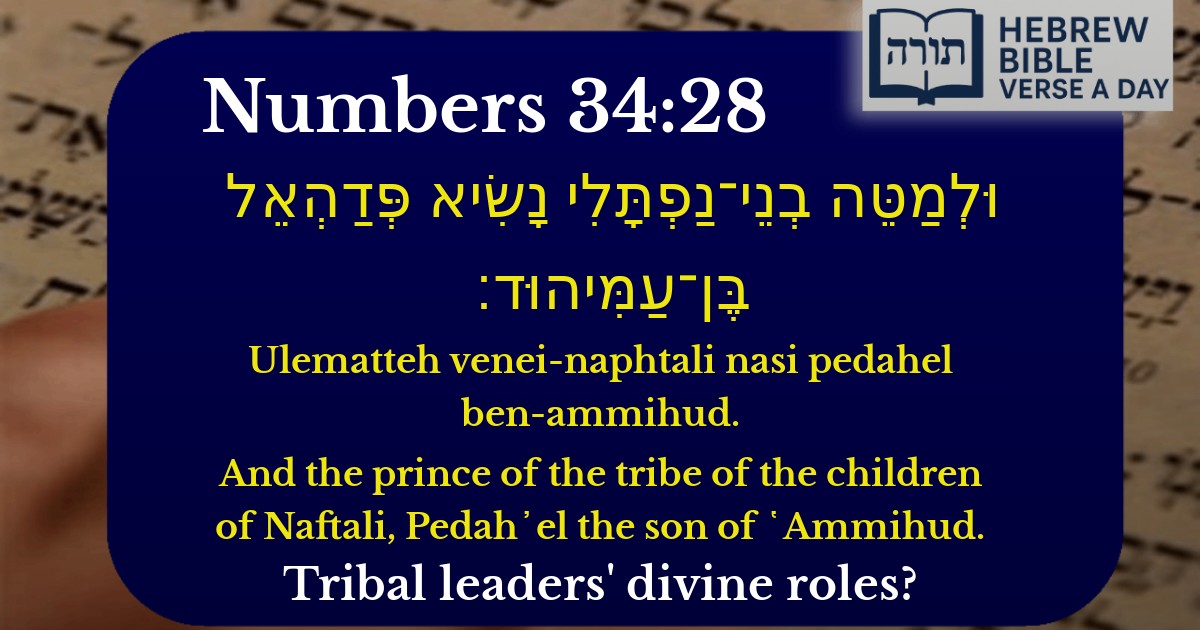Join Our Newsletter To Be Informed When New Videos Are Posted
Join the thousands of fellow Studends who rely on our videos to learn how to read the bible in Hebrew for free!
Hebrew Text
וּלְמַטֵּה בְנֵי־נַפְתָּלִי נָשִׂיא פְּדַהְאֵל בֶּן־עַמִּיהוּד׃
English Translation
And the prince of the tribe of the children of Naftali, Pedah᾽el the son of ῾Ammihud.
Transliteration
Ulematteh venei-naphtali nasi pedahel ben-ammihud.
Hebrew Leining Text
וּלְמַטֵּ֥ה בְנֵֽי־נַפְתָּלִ֖י נָשִׂ֑יא פְּדַהְאֵ֖ל בֶּן־עַמִּיהֽוּד׃
Parasha Commentary
📚 Talmud Citations
This verse is not quoted in the Talmud.


Introduction to the Verse
The verse (Numbers 34:28) lists Pedah'el ben 'Ammihud as the prince (נָשִׂיא) representing the tribe of Naftali during the division of the Land of Israel. This appointment reflects the Torah's emphasis on structured leadership and tribal representation in sacred matters.
Meaning of the Names
Leadership of Naftali
The Talmud (Horayot 10a) teaches that tribal princes were chosen for their wisdom and righteousness. Pedah'el's role underscores Naftali's distinction, as the tribe was known for its diligence in Torah study and agricultural prosperity (Deuteronomy 33:23). The Kli Yakar adds that Naftali's portion in the Galilee was fertile, and its leaders exemplified gratitude to Hashem for this blessing.
Historical Context
According to Rambam (Hilchot Sanhedrin 1:3), tribal princes were part of the broader system of judges and leaders appointed by Moshe. The Malbim emphasizes that Pedah'el's inclusion here highlights the orderly division of the Land, ensuring each tribe received its rightful inheritance under divine guidance (Bamidbar 34:2).